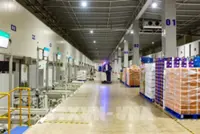VARIOUS China-backed projects such as the East Coast Rail Link are still under review, but Malaysia remains open to Belt and Road Initiatives (BRI) and investments from China, said Deputy International Trade and Industry Minister Dr Ong Kian Ming at the Standard Chartered Belt and Road Forum in Kuala Lumpur.
Concerns over the possibility of falling into the debt trap from the high debts incurred by BRI projects have sparked debates on national sovereignty, especially in Pakistan, Laos, Sri Lanka and the Maldives.





